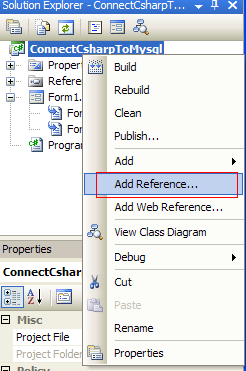Mysql Static Dll
Note To avoid potential crashes the build configuration of MySQL Connector/C++ should match the build configuration of the application using it. For example, do not use the release build of MySQL Connector/C++ with a debug build of the client application. Static library The MySQL Connector/C++ static library file is mysqlcppconn-static.lib. This needs to be statically linked with your application. You also need to link against the files libmysql.dll and libmysql.lib. Once linking has been successfully completed, the application will require access to libmysql.dll at run time.
Dynamic library The MySQL Connector/C++ dynamic library file is mysqlcppconn.dll. In order to build your client application you need to link it with the file mysqlcppconn.lib. At run time the application will require access to the files mysqlcppconn.dll and libmysql.dll. Building a MySQL Connector/C++ application with Microsoft Visual Studio Initially, the procedure for building an application to use either the static or dynamic library is the same. You then carry out some additional steps depending on whether you want to build your application to use the or library. • By default CPPCONN_PUBLIC_FUNC is defined to declare functions to be compatible with an application that calls a DLL. If building an application to call the static library, you must ensure that function prototypes are compatible with this.
I have been heavily contemplating adding the Embedded MYSQL Server Library into my application. My software is a layer between a Game Server and a Web Management Panel that provides extra functiona. Oris serial number check.
In this case CPPCONN_PUBLIC_FUNC needs to be defined to be an empty string, so that functions are declared with the correct prototype. In the Project, Properties tree view, under C++, Preprocessor, enter CPPCONN_PUBLIC_FUNC= into the Preprocessor Definitions text field. • Under Linker, Input, add mysqlcppconn.lib into the Additional Dependencies text field. • The application will need to access the MySQL Connector/C++ Dynamic Linked Library at run time. Therefore, mysqlcppconn.dll needs to be in the same directory as the application executable, or somewhere on the system's path. Copy mysqlcppconn.dll to the same directory as the application.
Alternatively, extend the PATH environment variable using SET PATH=%PATH%;C: path to cpp. Alternatively, you can copy mysqlcppconn.dll to the Windows installation Directory, typically c: windows.
#include To build such code with Connector/C++ 8 without modifying it, add $MYSQL_CPPCONN_DIR/include/jdbc to the include path. The X DevAPI uses C++11 language features. For that reason enable C++11 support in the compiler using the -std=c++11 option when building code that uses X DevAPI. This is not needed for X DevAPI for C (which is a plain C API) nor for the legacy JDBC API which is based on plain C++. Note The legacy API requires Boost headers.

The location of these headers needs to be added to the include path to correctly compile legacy code. Only the headers from Boost are needed – the Boost libraries are not used during linking phase. Using the shared library Depending on the platform, the shared Connector/C++ library is named: • libmysqlcppconn8.so on Unix platforms (soname libmysqlcppconn8.so.1) • libmysqlcppconn8.dylib on the OSX platform (link name libmysqlcppconn8.1.dylib) • mysqlcppconn8-1-vsXX.dll on Windows platforms (with import library vsXX/mysqlcppconn8.lib, see for more details) This library implements the new X DevAPI and X DevAPI for C.